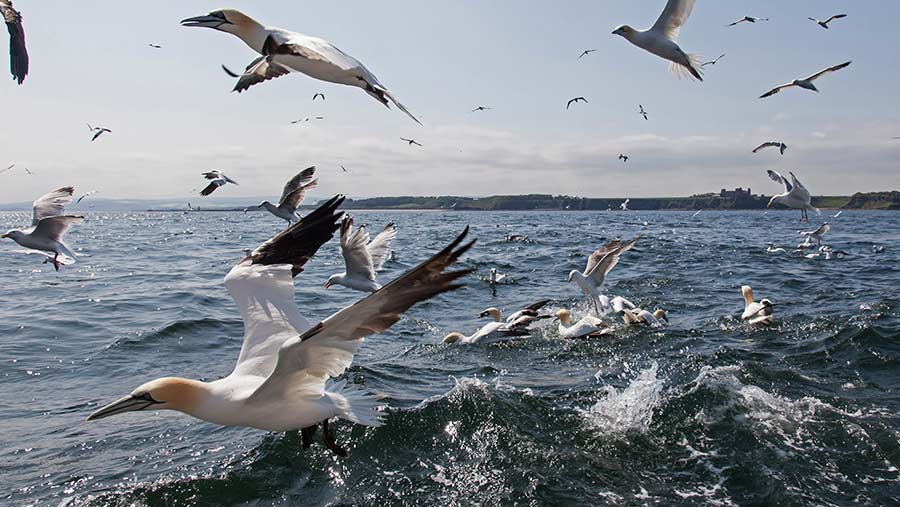Disease concerns grow as avian flu hits Scotland’s wild birds
 Gannets at Bass Rock, one of the sites affected by the disease © Gail Johnson/Adobe Stock
Gannets at Bass Rock, one of the sites affected by the disease © Gail Johnson/Adobe Stock Highly pathogenic avian influenza (HPAI) is causing concern in Scotland after reports that thousands of wild birds across the country have succumbed to the disease.
The RSPB said Shetland appeared to be the most heavily affected, but there are increasing numbers of reports of dead and dying birds from many of Scotland’s islands and coastlines.
See also: Avian influenza prevention tips and how to handle an outbreak
The presence of avian flu at this time of year is likely to cause concern for poultry keepers, in a season when cases of the disease have surged on the continent.
The RSPB has urged the Scottish government to see the decimation of seabird populations from HPAI as a wake-up call, and has asked for surveillance and testing, carcass disposal and tougher biosecurity measures.
There have been reports of widespread deaths among great skua (bonxie) colonies in Shetland, Fair Isle, Orkney, the Western Isles, Handa, the Flannan Isles and St Kilda.
As well as widespread reports of sick and dead gannets at key colonies – most notably Noss in Shetland but also Troup Head in the north-east, Bass Rock in the Firth of Forth and elsewhere.
Stewart Bain, RSPB Scotland officer in Orkney, said: “There is a sense locally that people feel helpless, but there are things you can do.
“Safety remains paramount and you should avoid contact with any dead or dying birds, but please report them to the Defra helpline [03459 33 55 77].
“This will help give a clearer picture of the situation and inform how it is dealt with. You can also try to be even more careful than normal about not disturbing nesting birds.”
NFU Scotland (NFUS) said it was confident the Scottish government was monitoring the situation and carrying out adequate surveillance.
Penny Middleton, NFUS pigs and poultry policy manager, said: “It has been a hell of a winter, and certainly it would have normally died down and we would not normally be seeing the cases we are seeing now.
“There is not a lot you can do about it in wild birds; they are highly mobile.
“In terms of industry, we still have the prevention zone in place, which means everybody should be taking biosecurity really seriously, and that is definitely a message we are putting out, that biosecurity is really important for all birdkeepers.”
NFU chief poultry adviser Aimee Mahony added: “It remains a difficult time for all birdkeepers with the risk of avian influenza still present. Vigilance for any signs of disease and prompt reporting remains vital. Poultry farmers continue to do all they can to ensure the health and welfare of their flocks, including following stringent biosecurity measures.”
Avian flu in Shropshire
On 6 June, HPAI of the H5N1 strain was suspected in birds at a site near Ludlow in Shropshire.
All birds on the site were humanely culled and temporary control zones put in place.
On 7 June, HPAI H5N1 was confirmed, and a 3km protection zone and 10km surveillance zone replaced the temporary control zones around the infected site.
